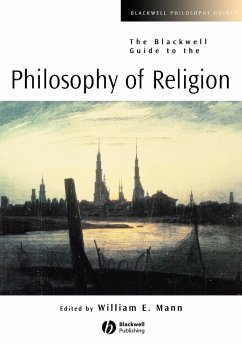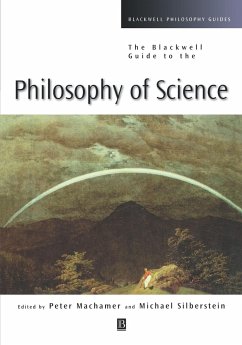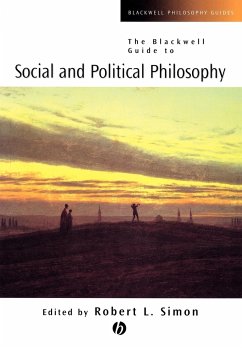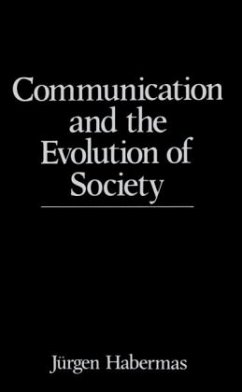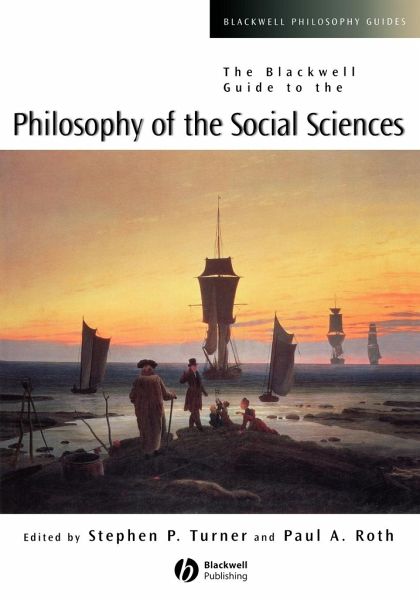
Turner
Broschiertes Buch
The Blackwell Guide to the Philosophy of the Social Sciences
Versandkostenfrei!
Versandfertig in über 4 Wochen
Weitere Ausgaben:

PAYBACK Punkte
29 °P sammeln!





The Blackwell Guide to the Philosophy of the Social Sciences collects newly commissioned essays that examine fundamental issues in the social sciences.
Stephen P. Turner is Graduate Research Professor and Chair of the Department of Philosophy at the University of South Florida. He is the author of many books including Sociological Explanation as Translation (1980). He is also editor of the Cambridge Companion to Max Weber (2000). Paul A. Roth is Professor of Philosophy at the University of Missouri-St. Louis. He is the author of Meaning and Method in the Social Sciences (1987). He co-founded and co-organizes the annual St. Louis Roundtable in the Philosophy of Social Science and is a member of the editorial board of Philosophy of the Social Sciences.
Produktdetails
- Blackwell Philosophy Guides
- Verlag: Blackwell Publishers
- Seitenzahl: 392
- Erscheinungstermin: 15. November 2002
- Englisch
- Abmessung: 254mm x 178mm x 21mm
- Gewicht: 695g
- ISBN-13: 9780631215387
- ISBN-10: 0631215387
- Artikelnr.: 14855748
Herstellerkennzeichnung
Libri GmbH
Europaallee 1
36244 Bad Hersfeld
gpsr@libri.de
'This is a guide in the best possible sense. It provides an historical as well as a thematic framework for appraising the debates that have shaped philosophy of social science since the nineteenth century, rooting it firmly both in philosophical traditions of thought about science and the social, and in the empirical and theoretical problems of abiding concern to social scientists. In the process the contributors effectively redefine this hybrid inter-field and show what is to be gained by serious cross-disciplinary engagement.' Alison Wylie, Washington University in St. Louis
'This first-rate volume is truly a state-of-the-art guide to a range of lively and fundamental issues and debates that are ever more central to both philosophy and the social sciences today. In coherently organized chapters the issues are lucidly and accessibly explained and the debates are engaged and frequently carried further.' Steven Lukes, New York University and London School of Economics
'This first-rate volume is truly a state-of-the-art guide to a range of lively and fundamental issues and debates that are ever more central to both philosophy and the social sciences today. In coherently organized chapters the issues are lucidly and accessibly explained and the debates are engaged and frequently carried further.' Steven Lukes, New York University and London School of Economics
Für dieses Produkt wurde noch keine Bewertung abgegeben. Wir würden uns sehr freuen, wenn du die erste Bewertung schreibst!
Eine Bewertung schreiben
Eine Bewertung schreiben
Andere Kunden interessierten sich für



